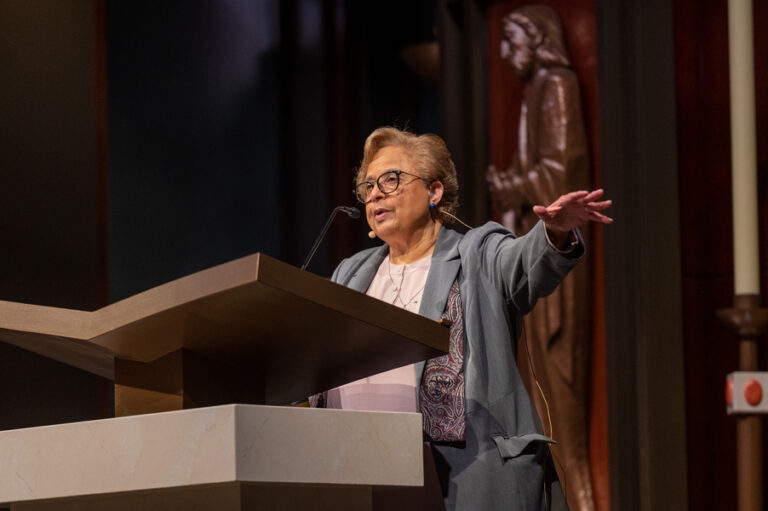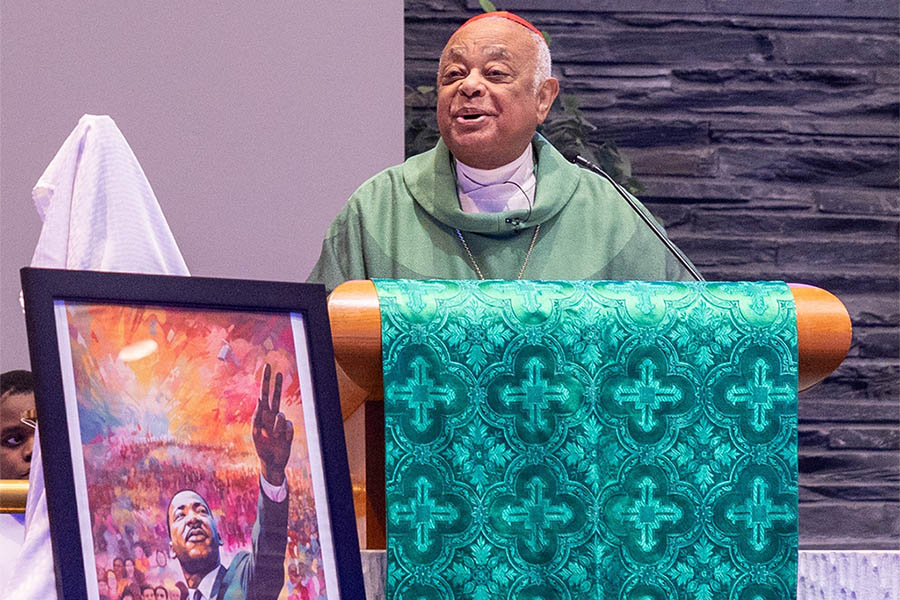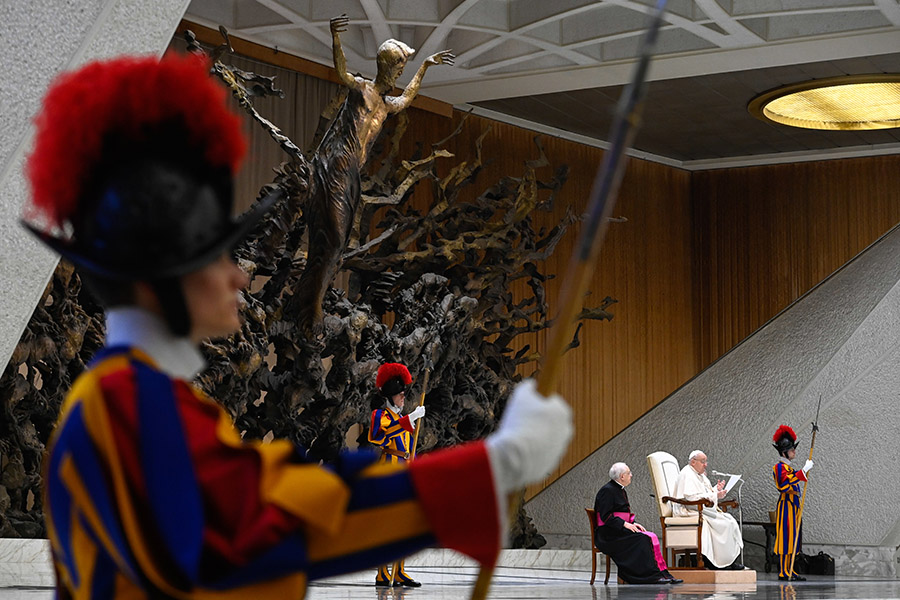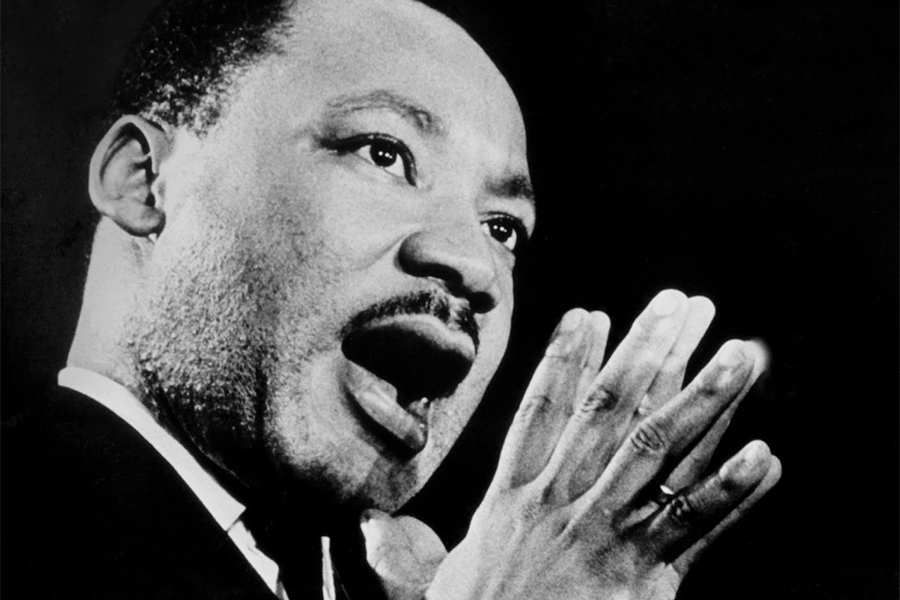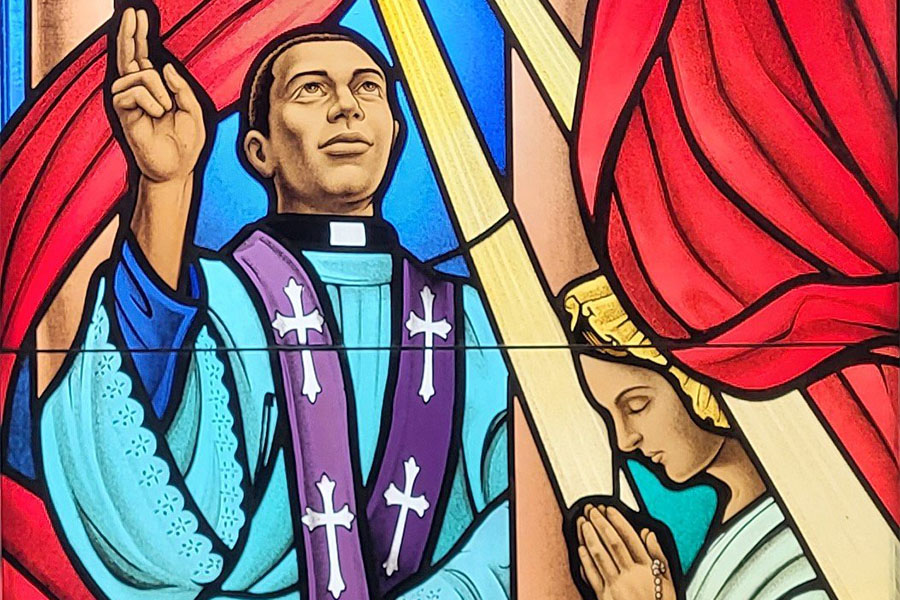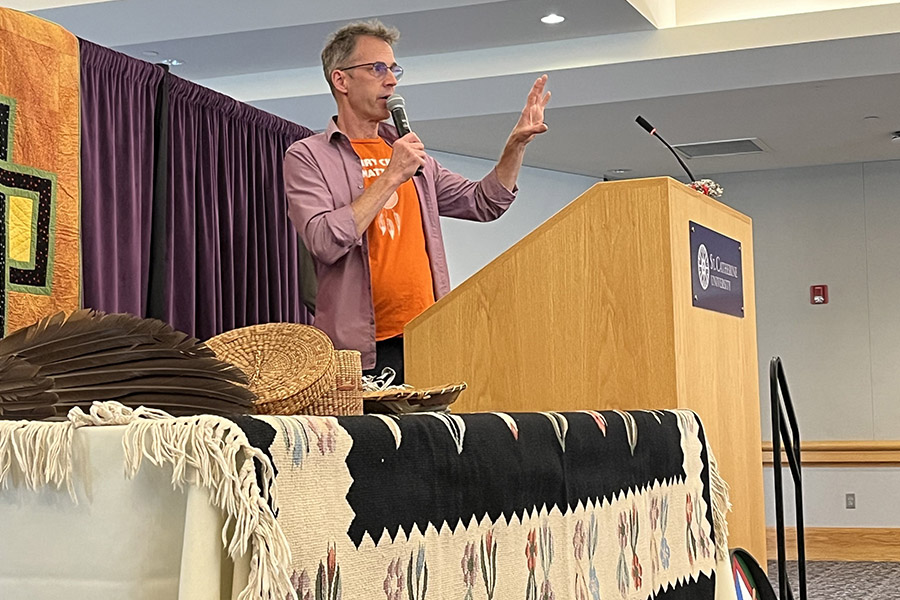TIMONIUM – As Catholic Charities of Baltimore continues to celebrate its 100th anniversary, the organization sponsored its first social justice symposium April 20 in person at Church of the Nativity in Timonium and livestreamed to six additional satellite locations.
Charities Executive Director William J. McCarthy Jr. welcomed those attending, about 200 between all the sites. “As we celebrate 100 years of pursuing our mission of providing services to Marylanders, we remain centered on our vision for the community where each person has the opportunity to achieve their God-given potential,” he said.
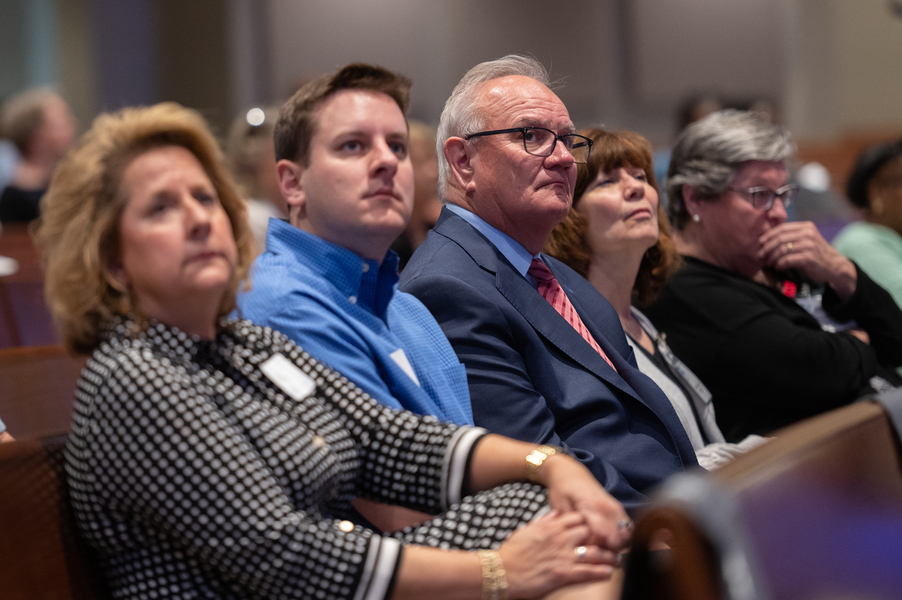
“Our mission, vision and values inspired us to convene this conversation and to work for social justice.”
The satellite locations included Baltimore Hebrew Congregation, Catholic Community of South Baltimore, Loyola University Maryland, Notre Dame of Maryland University, St. Elizabeth Ann Seton in Crofton and Sacred Heart of Jesus/Sagrado Corazón de Jesús in Highlandtown.
Author and theologian Dr. Greer Gordon presented the keynote address for the symposium, focusing on alliances for racial justice.
At the start, she admitted that the topic is a difficult one, and now is a difficult time to address it. She noted that her reflections come from her experience as a Black woman who grew up in south Louisiana, and eventually went to Ivy League schools on her path to becoming a theologian and lecturer, working in various dioceses and archdioceses across the country.
She noted that the incivility in the country is not necessarily new, but was unleashed again about six years ago, “when we thought the country was healing.”
She acknowledged that some people would say that sounds political, and she agreed, because the root of the word political means “of the people.”
“Where you have people, you will have politics,” Gordon said. But often, people say we should avoid politics as a way of taking away others’ ability to speak about certain matters.
In the current complex and volatile racial climate, “we are dealing with more than the issue of race and color,” but also society and economics.
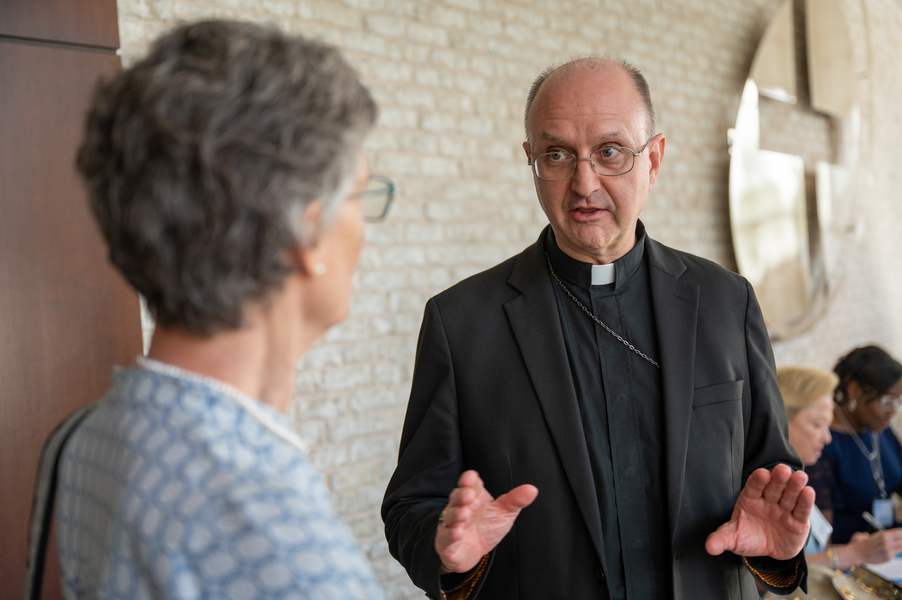
The reality is that “Black people were enslaved. Black people were a commodity,” she said, noting that family records indicate that one of her ancestors may have been sold as a slave in Baltimore.
When we forget people are human beings, they become commodities, Gordon said. “There was a time – there still is a time – when racial issues were rooted in the buying and selling of people.” But if those in control had ever considered those who were enslaved “as human beings, they would not have sold them or treated them as chattel.”
She noted that some people – and some state and local governments – “don’t want their children to be taught about this. They don’t want to acknowledge that they may have been part of it.”
She noted a parallel between the slavery and the Holocaust, with a nod to the Jewish satellite site, saying that most Christians don’t even know about the Holocaust and the murder of millions of Jews and others by the Nazis.
“If we don’t even acknowledge that in our modern times, there was an event that showed the inhumanity of people,” then we end up with young people wearing swastikas and giving the Nazi salute, she said.
He said one of the antidotes to callousness is empathy. “Evil is the absence of empathy,” Gordon said. The lack of empathy is obvious in those who spread hate or attack people in churches and synagogues.
Hate groups “lack the ability to be empathetic to people of other races, cultures and religions,” she said. “I’m hoping that when the close of my life comes, I am hoping not to go to the same place where the wicked people end up.”
She also said, “Racism teaches us to hate ourselves. If I hate myself, I’ll kill you. I kill my image that I see in you.”
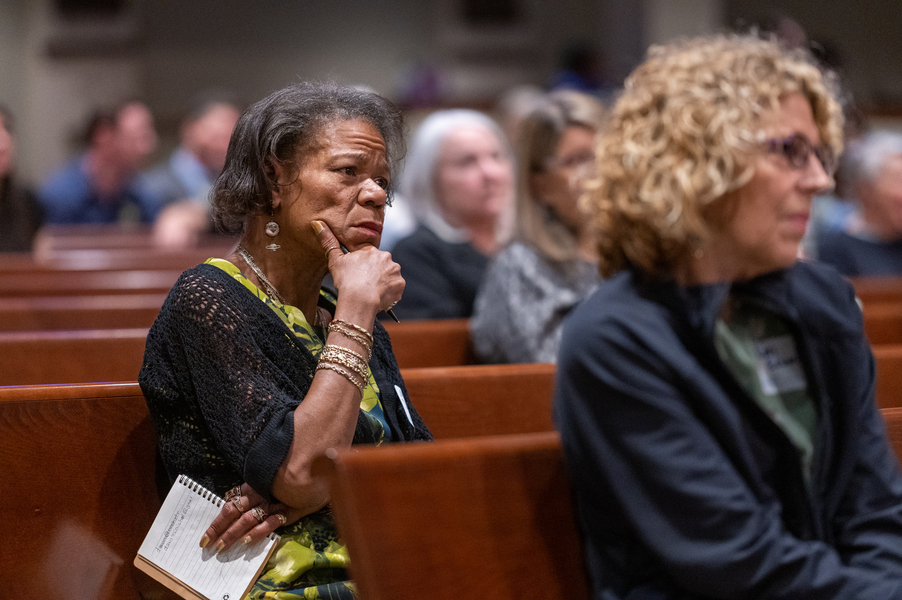
But brothers killing brothers goes all the way to the Hebrew Bible, she said, referring to the Old Testament, experienced today in inner cities where young Black men murder each other. “We have to begin conflict resolution at the earliest stages. It’s doable,” Gordon said.
Asked whether, despite all the experiences she had related in her talk, she still has hope, she said, “I do. All the goodness in this room can’t be contained.”
Economics and education are keys to the solution, and internships that lead young Black men from the streets are important. “If people can read, they can advance their lives,” she said.
“I do think there is hope. There is a lot to do, and it can be done.”
After the talk, Carey Appold, a Nativity parishioner, told the Catholic Review she appreciated Gordon’s “gentle lesson” about how to interrupt the dialogues that try to put people in racial or political camps.
Jeanne O’Connor of Sacred Heart in Glyndon said the talk was in the spirit of synodality – listening, dialogue, talking and empathy. The challenge is to bring the social justice message back to the front burner at her parish.
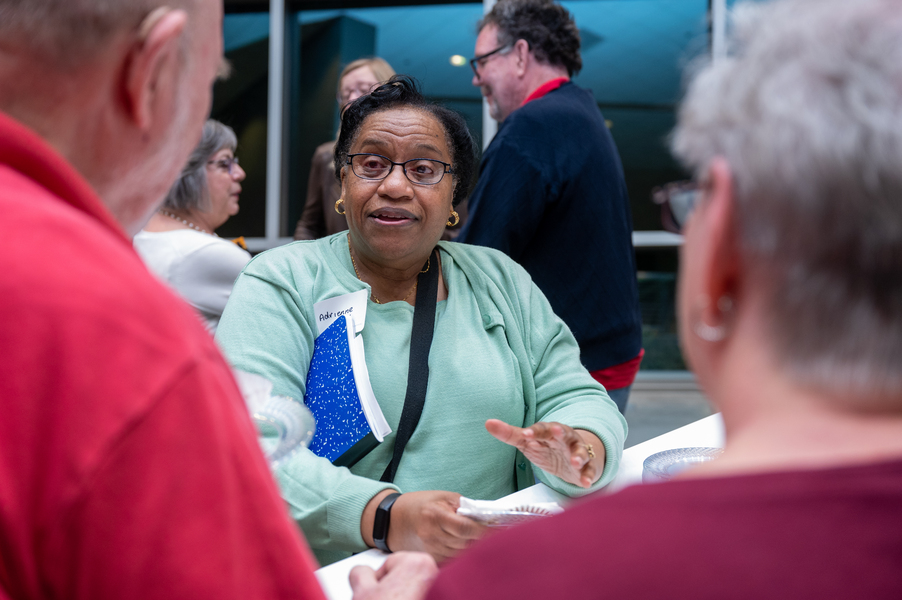
O’Connor said the idea of racism was not easy for her to grasp when she was younger, since she didn’t grow up or go to school with people of other races. “We didn’t know people who were not like us,” she said, but she never lost her empathy for others. One of her biggest regrets in life was not going to Selma, Ala., to join civil rights marches in the 1960s.
Trevor Bonat, chief mission integration officer for Ascension-St. Agnes Healthcare, said Gordon “gave a wonderful and challenging call to us to be more human with one another. I loved the emphasis on empathy.”
He said the medical system’s location in southwest Baltimore puts it at the confluence of a number of cultures in the people served and those who work there. Engaging in empathy “is better for us in caring for people but also for ourselves.”
His colleague Olivia Farrow, director of community engagement and advocacy, said the health care system wants to be an anchor with its staff and community to “deliver service free of any social injustice. It takes a lot of work to do that.”
The symposium is available for viewing on the Catholic Charities website at cc-md.org/justice, which also features a reflection guide based on Gordon’s talking points, and a Social Justice Toolkit.
Email Christopher Gunty at editor@CatholicReview.org.
Read More Racial Justice
Copyright © 2023 Catholic Review Media

